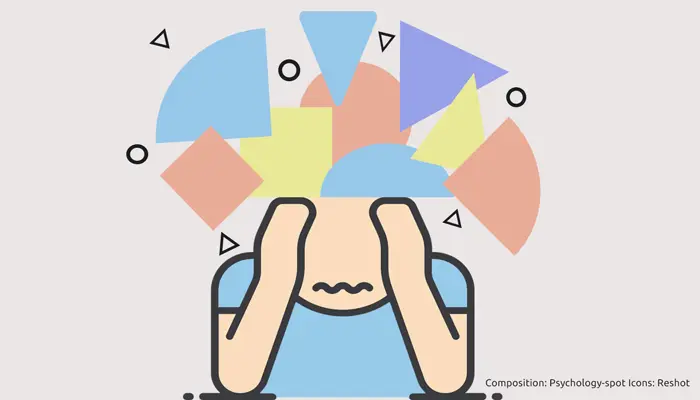
Periods of stress are inevitable. We cannot escape adversity and problems. But the way we deal with them can make a big difference, especially in our relationship. A turbulent life stage can create strong bonds and reinforce love, or on the contrary, it can have a detrimental effect on the relationship that ends up leading to recriminations and, ultimately, a breakup.
When stress in the couple clouds our perception
A new study conducted at the University of Texas looked at the impact of stress on new marriages. These researchers found that newlyweds who had experienced more stressful life events paid much more attention to daily changes in their partner’s negative behaviors, but made a major mistake: They overlooked the positive ones.
The researchers recruited newly married couples without children. They had all been married less than six months and it was the first time they got married.
In an initial questionnaire, participants had to indicate from a list of more than 100 stressful events related to marriage, work, school, family and friends, finances, health, personal events, living conditions, and the legal issues which they had experienced in the last six months and to what extent it had impacted them. They also underwent tests to assess their self-esteem, attachment style, and level of neuroticism.
Then each member of the couple answered questions about the status of their relationship for 10 days. First, they indicated their level of stress due to daily problems and then they indicated whether there were positive or negative behaviors in the couple’s relationship, such as criticism or small displays of love.
Overall, men reported behaving negatively on 19.1% of days and women on 24.9%. In contrast, men indicated that they perceived negative behaviors from their partners on 23.7% of the days, while women noted negative behaviors from their partners on 21.9%.
What is interesting about this research, however, is that people who had experienced more recently stressful life events were less likely to underestimate their partner’s negative behaviors and were especially attentive to daily fluctuations in negativity, regardless of self-esteem levels, neuroticism or attachment styles.
Interestingly, it wasn’t the same about positive behaviors. This suggests that when we are stressed we focus more on the negative aspects of our partner and have a tendency to overlook the positive ones. That negativity can condemn us to a toxic loop.
Why does stress make us see our partner in a darker light?
Previous research has shown that happiness can help us get over our partner’s insensitivity and other negative behaviors, so it stands to reason that we also experience the opposite effect when we’re feeling stressed.
However, it should be clarified that daily discomforts did not change the way in which people perceived the positive or negative behavior of their partners; Only serious life events influenced such perceptions.
Psychologists suggest that this change in perception may be because more serious events make us more sensitive to the other negative things going on around us. In practice, the most stressful and potentially traumatic events can plunge us into a state of hypervigilance that allows us to notice negative signals, a kind of defense mechanism to protect us from new potential problems.
In fact, it has even been appreciated that when we feel anxious and stressed we can mistake neutral signals for threatening signals. In practice, our brain prepares for the worst.
However, in this condition we are also less able to control irritation, behave more impulsively, and are less likely to appreciate positive behaviors, which can increase friction and fights in the relationship, adding even more stress to our life.
This phenomenon also explains why during periods of increased stress we become less tolerant of our partner’s inconsiderate behavior. If the other criticizes or hurts us, it is unlikely that we will give him/her the benefit of the doubt or forgive the transgression. Instead, we will have a tendency to blame him/her. In fact, other research has shown that when we are stressed we display more punitive behaviors when discussing relationship problems.
The good news is that being aware of the knock-on effect triggered by adverse life events can help us mitigate their consequences. If we know that we are stressed, we can focus more actively on the positive aspects of our partner to help us better cope with adversity and strengthen the relationship, instead of adding fuel to the fire of tension and stress.
Sources:
Neff, K. A. et. Al. (2022) When Rose-Colored Glasses Turn Cloudy: Stressful Life Circumstances and Perceptions of Partner Behavior in Newlywed Marriage. Social Psychological and Personality Science; 10.1177.
Williamson, H. C., et. Al. (2013) Financial strain and stressful events predict newlyweds’ negative communication independent of relationship satisfaction. Journal of Family Psychology; 27(1): 65–75.



